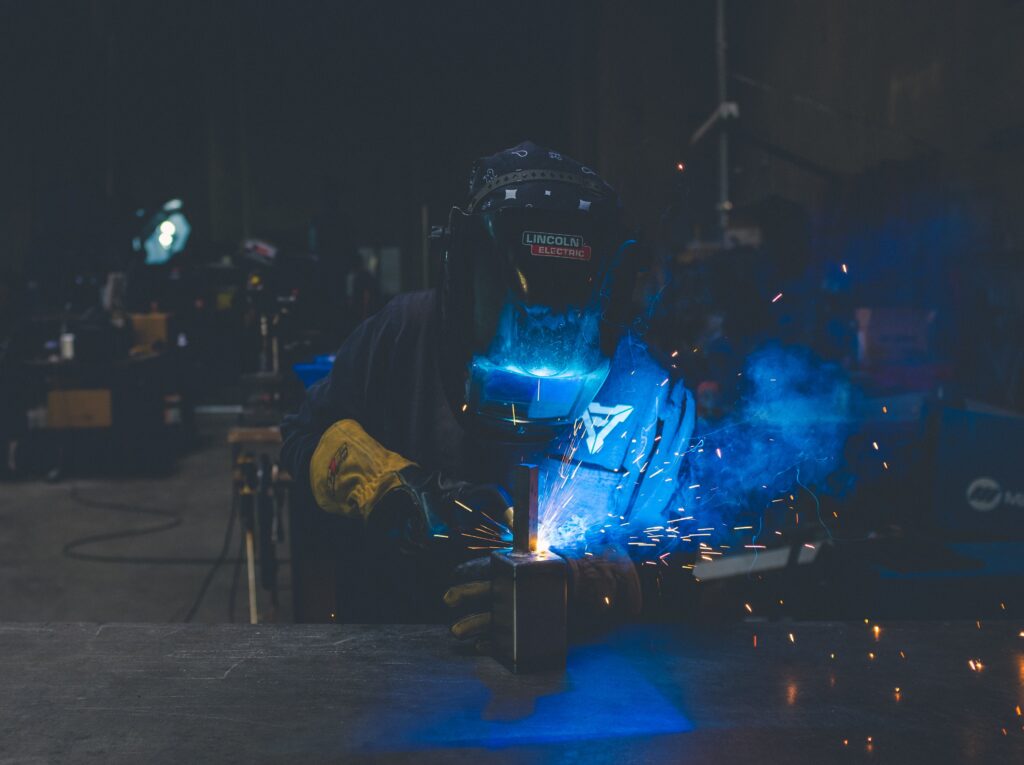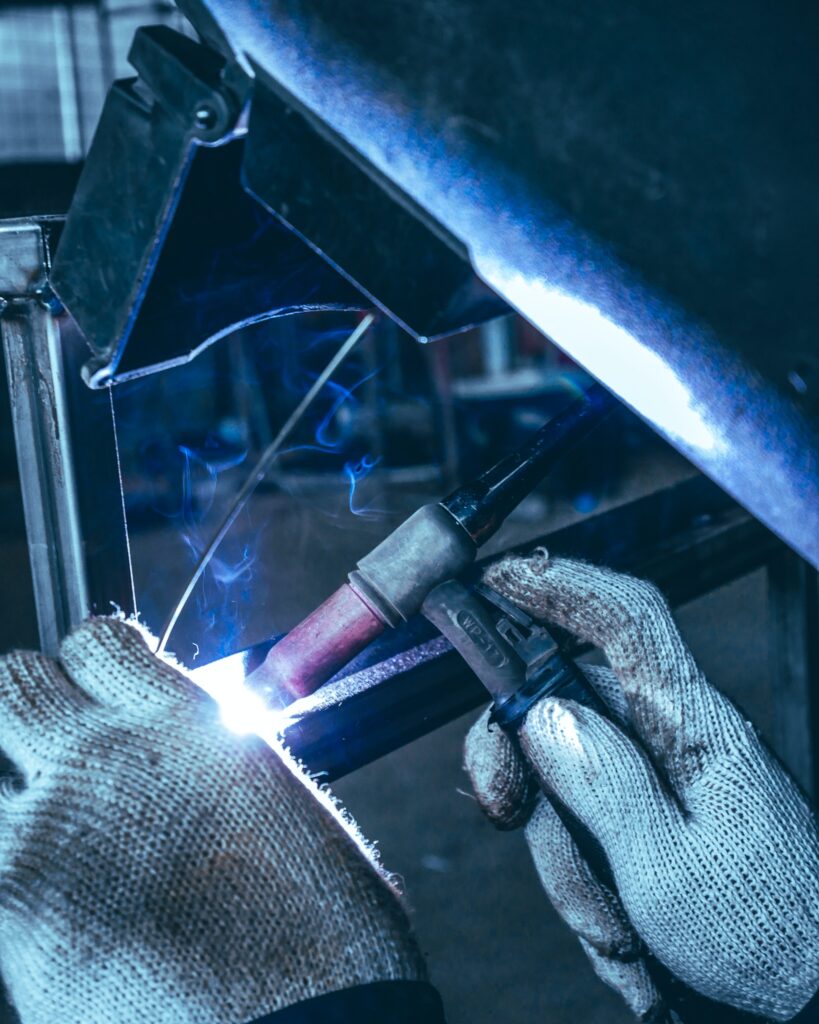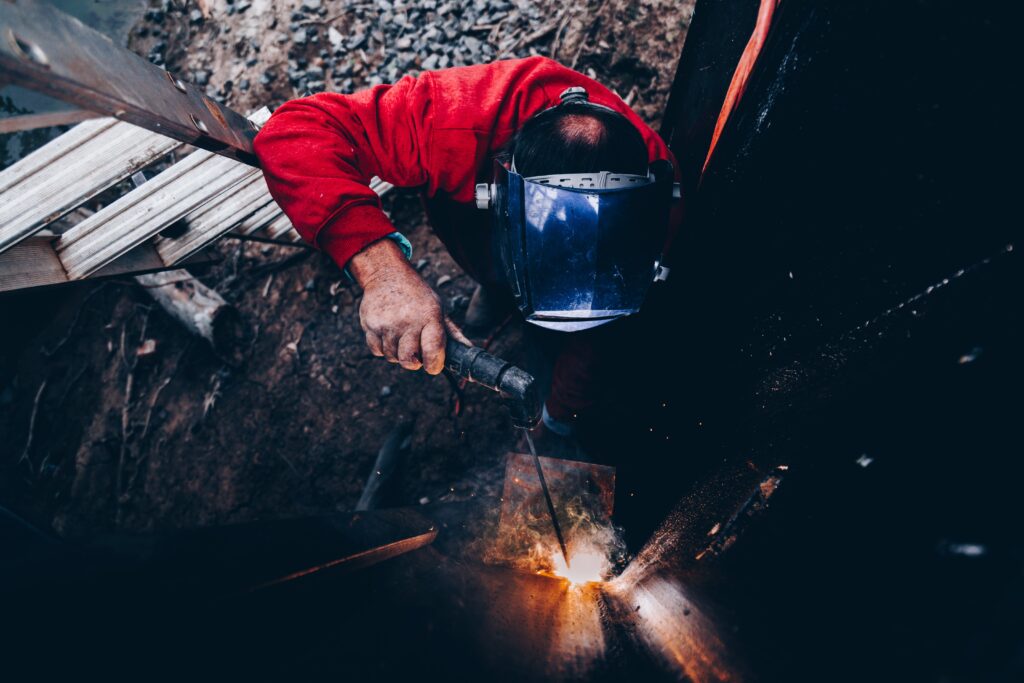It’s a thrill to help you embark on your journey to mastering the practical art of welding. This article, “How To Join Union Apprenticeship For Welding,” is your roadmap, guiding you through the essential steps you need to follow to become an apprentice. As you traverse through its enlightening sections, you’ll learn about the importance of unions, apprenticeships in welding, and how you can seamlessly join one. You’re just one article away from molding metal to your will and building the stable, prosperous career that you dream of!
Understanding Union Apprenticeships in Welding
union apprenticeships in welding are designed to provide hands-on training along with theoretical knowledge for aspiring welders. These programs are established and run by various unions representing professional welders.
What a union apprenticeship involves
A union apprenticeship typically involves a combination of classroom instruction and on-the-job training under the supervision of experienced welders. The duration can vary but it usually lasts between four to five years. During this period, you’ll learn and practice various welding techniques, become familiar with welding tools and equipment, and gain knowledge about safety standards and regulations in the welding industry.
Benefits and challenges of union apprenticeships
One of the main benefits of a union apprenticeship is that it provides a solid foundation in welding while allowing you to earn income. You’ll have the opportunity to work on actual projects under the guidance of seasoned professionals. Union apprentices also enjoy certain benefits like healthcare and retirement plans. However, it’s important to acknowledge the challenges as well. These might include long hours, physically demanding work, and maintaining safety in a hazardous environment.
The role of unions in apprenticeships
Unions play a critical role in the apprenticeship process. They’re responsible for setting up the apprenticeship programs, securing job placements for apprentices, and ensuring competitive wages. They also look after the welfare of the apprentices and their rights, making certain that work conditions are safe and fair.
Requirements for Joining a Union Apprenticeship in Welding
Before you can join a union apprenticeship in welding, there are several requirements you need to meet.
Education level
While the requirements may vary from one jurisdiction to another, generally, you need at least a high-school diploma or equivalent to apply. There might also be pre-requisite courses in math and physics that you need to have completed.
Age restrictions
Most unions require you to be at least 18 years old to join an apprenticeship program.
Physical conditioning
Welding is physical work that requires stamina and strength. Therefore, you must be in good physical condition to withstand the demands of the profession.
Legal eligibility
You must be legally allowed to work in the jurisdiction where the apprenticeship is located. Some unions might also require you to possess a valid driver’s license due to the nature of the work.

Applying for a Union Apprenticeship in Welding
Once you meet the requirements, your next step is applying to the apprenticeship program.
Steps to applying
Begin by doing research on various union apprenticeships and choose one that suits you. The application process typically includes filling out an application form, which would require information such as your personal details, educational qualifications, and any previous experience. Once completed, submit your form along with the necessary supporting documents.
Required documents
Your high school diploma or equivalent, any other educational certificates, reference letters, and proof of physical fitness may be required as supporting documents during application.
Application deadlines
The application deadlines vary from one union to another. Make sure you are aware of the deadline and submit your application in a timely manner.
How to write a compelling application
Highlight your passion for welding and eagerness to learn. Include any welding courses or workshops you have attended, your academic achievements, and any related work experience you might have.
Preparation for the Apprenticeship Application
Before applying, it’s important to assess and prepare yourself for the apprenticeship.
Self-assessing for readiness
It’s crucial to ask yourself whether you’re ready for the demands and commitment the apprenticeship requires. Are you excited about welding? Are you ready for physically demanding work? Are you prepared to balance work and study simultaneously?
Academic preparation
It’s helpful to have a solid foundation in math and physics since welding often involves calculations and understanding the properties of materials.
Obtaining initial welding exposure
Getting some initial exposure to welding, through workshops or short courses, will help you during the application process.
Understanding the welding environment
Research about the welding environment. Get to know the common challenges welders face on the job, and how they keep themselves safe.

Understanding Different Welding Unions
Welding unions play a vital role in protecting the rights of welders and ensuring their welfare. It’s important to understand their roles and responsibilities.
Major welding unions in United States
The United Brotherhood of Carpenters, United Association Union of Plumbers, Fitters, Welders, and Service Techs, and the International Brotherhood of Boilermakers are among some of the major welding unions in the US.
Roles and responsibilities of different unions
Each union has specific roles and responsibilities depending on their constitution and the needs of their members. They generally aim to ensure fair wages, safe working conditions, and protect the rights of their members.
Choosing the right union
Choosing the right union depends on factors such as the industries they serve, their reputation, the benefits they offer, and what aligns with your career goals.
Interviewing for Union Apprenticeship in Welding
Once you’ve submitted your application, you might be called for an interview.
Tips for successful interview
Be on time, dress appropriately, and anticipate possible questions. It’s important to highlight your commitment, motivation, and any relevant skills during the interview.
Common interview questions
You might be asked questions about your interest in welding, your understanding of the profession, or how you handle physical and mental pressure.
Post-interview follow up
A thank-you note expressing your gratitude for the opportunity is always appreciated and keeps you fresh in the minds of the interviewers.

The Role of Mentorship in Union Apprenticeship
Mentorship can be instrumental in shaping your apprenticeship experience.
Importance of mentorship
Having a mentor gives you someone experienced to learn from, get advice, and support your professional development.
Finding a mentor
Your mentor could be any experienced welder willing to share their knowledge and experience. They could be a colleague, a supervisor, or anyone you admire in your professional network.
How mentorship enhances your apprenticeship
Mentors can offer invaluable insights drawn from their personal experiences. This can help you to avoid common pitfalls, learn better work techniques, and understand how to navigate the profession.
What to Expect During the Apprenticeship
An apprenticeship is a dynamic mix of learning and working.
Typical tasks of welding apprentices
Depending on your current level of competency, you might start with tasks like maintaining tools and cleaning workspaces, and gradually move on to more complex tasks like cutting and joining metal parts under supervision.
Navigating union policies
Understanding union policies is crucial. These policies cover various aspects such as your rights, benefits, and safety rules, which greatly impact your working conditions.
Opportunities for learning and growth during the apprenticeship
The apprenticeship provides an opportunity to learn different welding techniques, understand the application of these techniques in various industries, and develop a professional network, all of which contribute to your career growth.

Upon Completion of Union Apprenticeship
Once you’ve completed your apprenticeship, you’re ready to become a professional welder.
Types of welding jobs available
Depending on your interests and skills, you might find jobs in sectors such as construction, manufacturing, shipbuilding, and many others. You could work as a structural welder, pipeline welder, or welding inspector among other roles.
How to leverage apprenticeship experience to enhance career
You can use the knowledge and skills obtained during your apprenticeship to distinguish yourself in your job applications and interviews.
Continuous professional development in welding
Industry trends and techniques are continuously evolving. Engage in continuous education to keep your welding skills current and competitive.
Challenges During Union Apprenticeship And Solutions
Despite the numerous benefits, union apprenticeships may also present various challenges.
Common hardships of welding apprentices
These could include handling physically demanding tasks, adapting to long working hours, dealing with hazardous materials, and meeting academic requirements.
Handling workplace conflicts
It’s essential to understand the procedures to resolve conflicts in your workplace. Open communication, mediation, negotiation, and following your union’s dispute resolution policy are some methods to address conflicts.
Maintaining work-life balance during apprenticeship
Balancing work and personal life may be challenging during the apprenticeship. However, good time management, equal dedication to work and personal time, and effective stress management strategies can be helpful.

